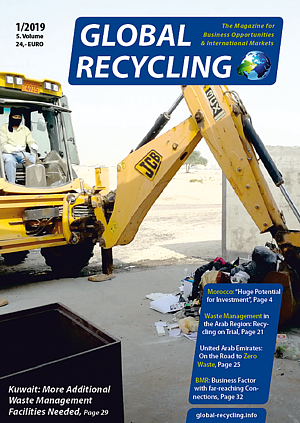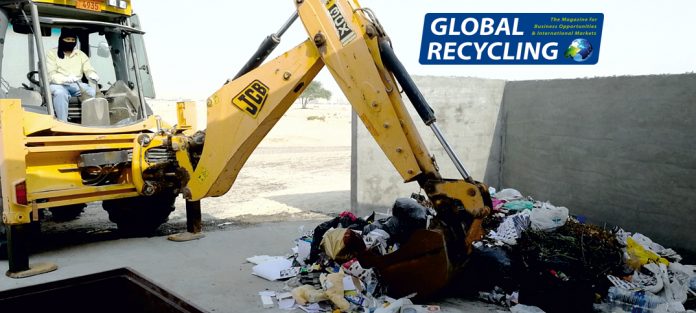When the second official Global Recycling Day takes place on 18th March 2019, this international event is bringing cities, organizations, enterprises and proponents together to support the promotion of recycling.
“This year, the theme is ‘Recycling into the Future’, focusing on the importance and power of youth, innovation and education in ensuring a brighter future for the planet,” the Global Recycling Foundation announced. The organization, established by the Bureau of International Recycling (BIR) in 2018, anticipates that the Global Recycling Day 2019 will be more successful than last year’s event when over 13 million people took part in raising recycling awareness and celebrating initiatives around the world.
It seems as if there will be a very bright future for recycling, the recycling industry and the use of recycled material. However, there are some clouds darkening the clear blue sky of profitable perspectives. In January this year, BIR informed that an Expert Working Group is reviewing the Annexes I (hazardous constituents), III (hazardous characteristics) and IV (waste is defined by it going to any of the operations listed in Annex IV) and related aspects of Annex IX to the Basel Convention. In this context, the European Union “has put forward proposals that have shocked recyclers, particularly in developing countries,” the world recycling association gave account. “Changes to the Basel Convention’s Annexes will have widespread repercussions across the world as nearly all countries will change their national laws on waste to align with the Basel Convention. For example, Annex IV currently defines ‘what operations are recycling’ and therefore ‘who is a recycler’.” A series of proposed modifications to this Annex would restrict those operations legally defined as recycling in the future. “Those changes would seriously disadvantage the majority of developing countries and small island developing states around the world that only have, and depend on, their mechanical recycling operations,” BIR fears. “How will all those developing countries report on meeting their UN Sustainable Development Goals on recycling if they have no recycling?” According to BIR, there are thousands upon thousands of companies around the world that are currently defined as recycling operations. “If the EU gets its way, these businesses would legally no longer be recyclers,” the association stated. Therefore, it calls on all its members to make a polite request of their environment ministries to oppose the proposed narrowing of the legal definition of recycling at the Basel Convention.
This raises the question of who takes the glory for recycling. A part of it gets the manufacturing industry, which has intensified the use of secondary raw material for its products. However, without collection, sorting and treatment of waste from various sources and of different components – as the recycling industries have done for many years – there would be no recycled material. That is why the recycling sector – along with the international trade of these materials – is highly relevant for global recycling.

Beyond that, a growing number of authorities spring into action to cut the amount of waste. In August last year, 23 global cities and regions signed the declaration towards zero waste of C40 Cities, an organization which connects 96 of the world’s greatest cities to take climate action. The aim is, inter alia, to increase the diversion rate to 70 percent by 2030. Signatories include Dubai in the United Arab Emirates as well.
With regard to waste management, there will be a change in the countries of the Middle East and North Africa (MENA). In Morocco, the waste sector is getting increasingly more interesting for investments (page 4). The United Arab Emirates is on its way to zero waste (page 25). Kuwait is pursuing the same goal, but needs additional waste management facilities (page 29).
We hope you get a lot of new and useful information from reading this current magazine:
http://bit.ly/global-r12-19 (Page-Flip) or http://bit.ly/global-r12-19pdf (PDF-File)
Source: MSV GmbH / www.global-recycling.info






